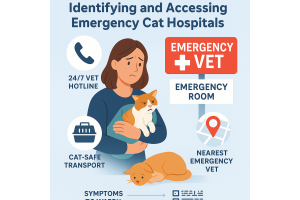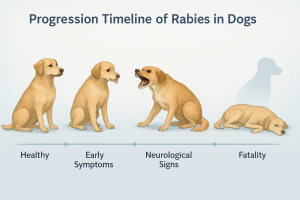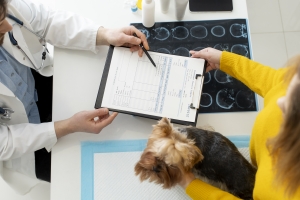Is It Safe for Your Dog to Snack on Cat Food

Understanding the dietary needs of our pets is crucial to keeping them healthy and happy. As pet parents, we often wonder about the best nutrition for our furry friends, especially when they seem interested in each other's food bowls. Ensuring our pets receive the right nutrients is essential for their wellbeing. One common question that arises is whether it's safe for dogs to eat cat food. Let's dive into the key differences between cat food and dog food, and explore whether it's safe for dogs to snack on cat food.
Differences Between Cat Food and Dog Food
To understand why the two types of food are distinct, we need to consider the nutritional requirements of cats and dogs. While both are beloved pets, their dietary needs are quite different. This difference is primarily due to their evolutionary backgrounds and biological needs. Understanding these differences can help pet parentsmake informed decisions about feeding their pets.
Nutritional Needs of Cats
Cats are obligate carnivores, which means their diet consists primarily of meat. They require a high-protein diet, rich in certain amino acids like taurine, which is vital for their health. Taurine deficiency in cats can lead to serious health problems, including heart disease and vision loss. Additionally, cats also require arachidonic acid and vitamin A in their diet, which they cannot synthesize from plant sources. This means that their dietary plans must be carefully curated to meet these specific needs.
Nutritional Needs of Dogs
Dogs, on the other hand, are omnivores. Their diet can be more varied, including a mix of proteins, carbohydrates, and fats. Dogs require a balanced diet that provides all essential nutrients but doesn't rely as heavily on protein as cats do. Unlike cats, dogs can digest a wider variety of foods, including grains and vegetables, which can provide essential nutrients and fiber. This flexibility allows for a broader range of dietary options that can be tailored to their specific health needs and lifestyle.
Why Dogs Might Eat Cat Food
Dogs are known for their curious and sometimes indiscriminate eating habits. There are several reasons why a dog might be interested in cat food. Understanding these reasons can help pet parentsmanage their pets' dietary habits more effectively and prevent unwanted snacking.
Aroma and Flavor: Cat food is often more aromatic and flavorful than dog food, which can be enticing to dogs. The high protein and fat content give cat food a rich taste and smell that can be irresistible to dogs. This can be especially true for wet cat food, which has a strong aroma that can attract dogs.
Curiosity: Dogs are naturally curious creatures and might investigate anything new or different in their environment, including cat food. Availability: If cat food is more accessible than their own, a dog might opt for the easier choice. Dogs may take advantage of an unattended bowl of cat food, especially if their own food is less appealing or readily available. Ensuring that each pet's food is properly stored and served can help mitigate this issue.
Is It Safe for Dogs to Eat Cat Food?
Now that we understand the differences between cat and dog food, let's address the main question: Is it safe for dogs to eat cat food? While it might not immediately harm them, there are important considerations to keep in mind.
Occasional Snacking
In small amounts, cat food is not harmful to dogs. An occasional snack of cat food won't likely harm a healthy dog. However, it should not become a regular part of their diet. Just like humans occasionally indulge in treats outside their regular meals, dogs can occasionally sample cat food without significant risk, but it should not become a habit.
Potential Health Risks
Feeding cat food to dogs regularly can lead to several health issues.
Digestive Upset: The high protein and fat content can cause digestive problems in dogs, leading to vomiting or diarrhea. Dogs' digestive systems are not designed to process the rich content of cat food, which can result in gastrointestinal distress.
Pancreatitis: The high fat content in cat food can lead to pancreatitis in dogs, a serious condition that requires veterinary care. Pancreatitis is an inflammation of the pancreas that can cause severe pain and requires immediate medical attention.
Nutritional Imbalance: Over time, eating cat food can cause nutritional imbalances in dogs, as they won't be getting the necessary nutrients they need from their regular diet. This can lead to deficiencies in essential nutrients that are vital for a dog's health and well-being.
What to Do If Your Dog Eats Cat Food
If your dog occasionally snacks on cat food, there's usually no cause for alarm. However, if you notice any signs of illness such as vomiting, diarrhea, or lethargy, it's important to contact your veterinarian. Monitoring your dog's health after eating cat food can help catch any potential issues early.
Conclusion
While it might be tempting to let your dog snack on cat food, it's important to understand the potential risks and differences in nutritional needs. Cat food is formulated specifically for cats, and while an occasional nibble won't harm your dog, it should not replace their regular diet. By providing a balanced diet tailored to your dog's needs, you can ensure they remain healthy and happy.
For more information on pet nutrition and to find the best food for your dog, consult with your veterinarian or a pet nutritionist. They can provide personalized recommendations based on your dog's unique needs. Prioritizing your pet's nutrition is an essential part of responsible pet ownership, ensuring they lead a long, healthy life.






